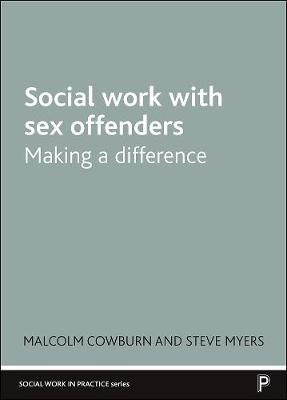Social Work in Practice
2 total works
This topical book engages with a wide range of issues related to social work practice with people who have sexually offended. It addresses the emotional impacts of ‘facing the sex offender’, the importance of values and ethics in practice, and reviews popular and academic understandings of sex offenders and sex crimes. Its accessible style and use of practice based learning exercises will help readers to reflect on theory, practice and developing emotional resilience.
Social work in the UK has recently undergone its biggest change for 30 years. As new regulatory bodies are working to consolidate social work's professional status, a new training programme, now at degree level, expects increased in-practice learning. Yet until now, students have struggled to find resources to underpin their learning.
This major text addresses the new agenda and explores what social work is in the 21st Century. Structured around the framework of the National Occupational Standards for social work - and using terminology and concepts contained within them - the book examines how social work can make a difference in the lives of individuals, families and communities and argues that to really make a difference it is necessary to think outside the box.
The book provides all social work students with an introductory social work textbook for the 21st century with the main chapters following the six National Occupational Standards for social work. Each chapter uses a problem-based learning approach, beginning with a 'real-life' case scenario from social work practice and drawing on messages from theory and research. It includes a range of student friendly features including glossaries, summaries, questions, exercises, further reading and links to other resources and is written by leading authors in their field and evaluated in detail by a distinguished editorial panel.
Demonstrating social work's potential to be transformative, this book provides the perfect introductory text for a new generation of social workers.
This major text addresses the new agenda and explores what social work is in the 21st Century. Structured around the framework of the National Occupational Standards for social work - and using terminology and concepts contained within them - the book examines how social work can make a difference in the lives of individuals, families and communities and argues that to really make a difference it is necessary to think outside the box.
The book provides all social work students with an introductory social work textbook for the 21st century with the main chapters following the six National Occupational Standards for social work. Each chapter uses a problem-based learning approach, beginning with a 'real-life' case scenario from social work practice and drawing on messages from theory and research. It includes a range of student friendly features including glossaries, summaries, questions, exercises, further reading and links to other resources and is written by leading authors in their field and evaluated in detail by a distinguished editorial panel.
Demonstrating social work's potential to be transformative, this book provides the perfect introductory text for a new generation of social workers.

